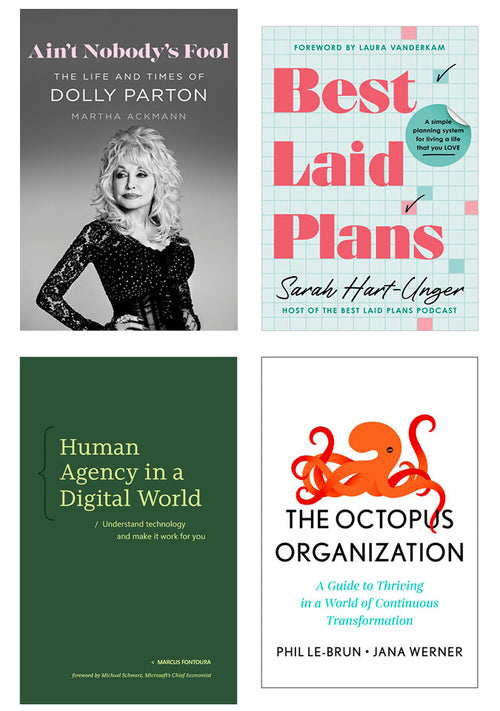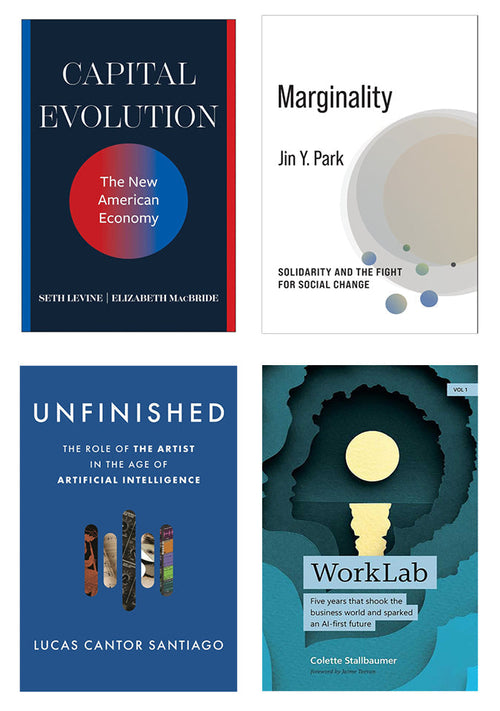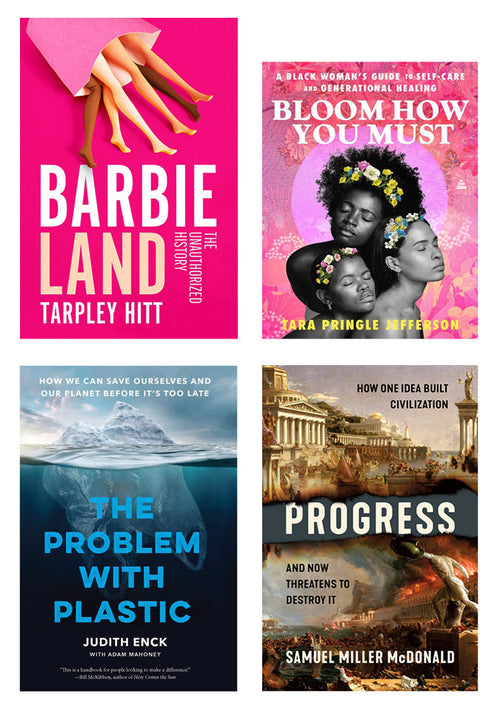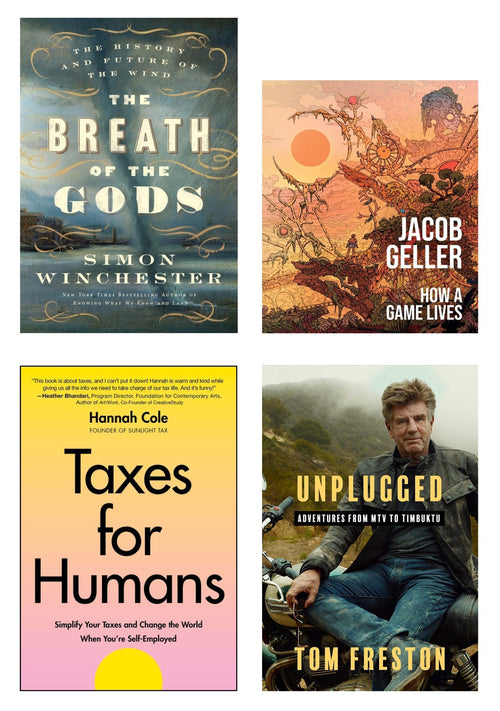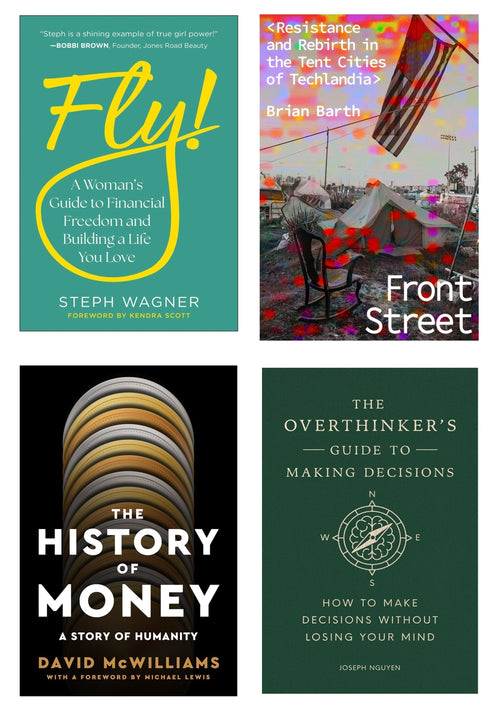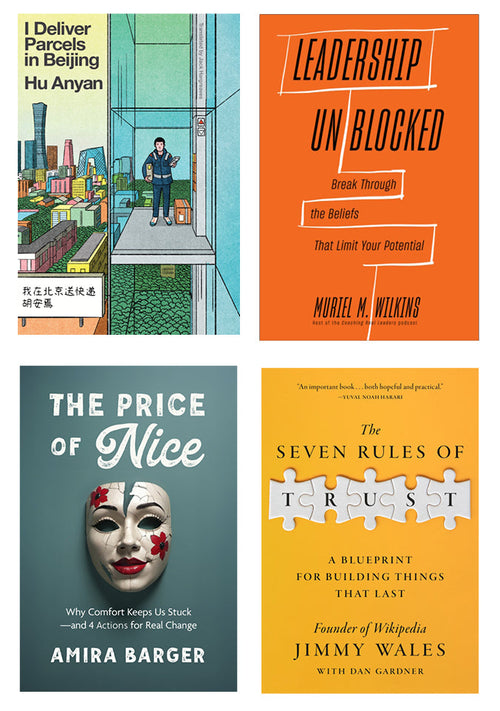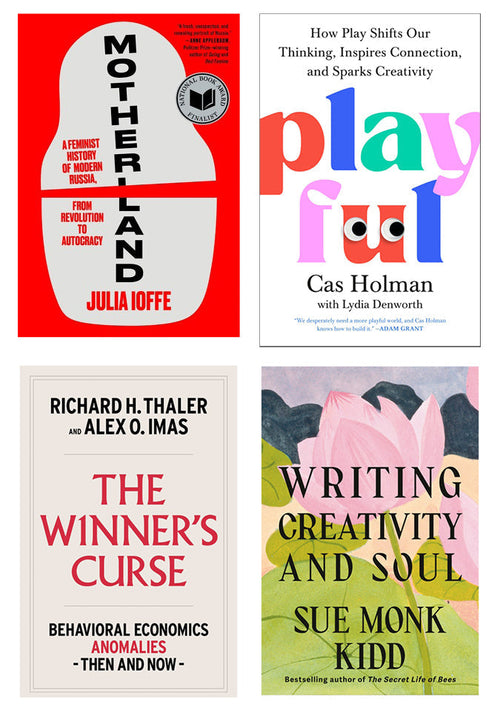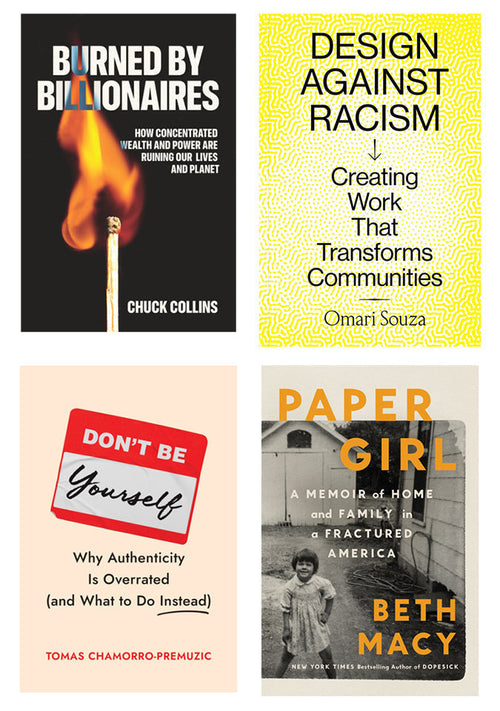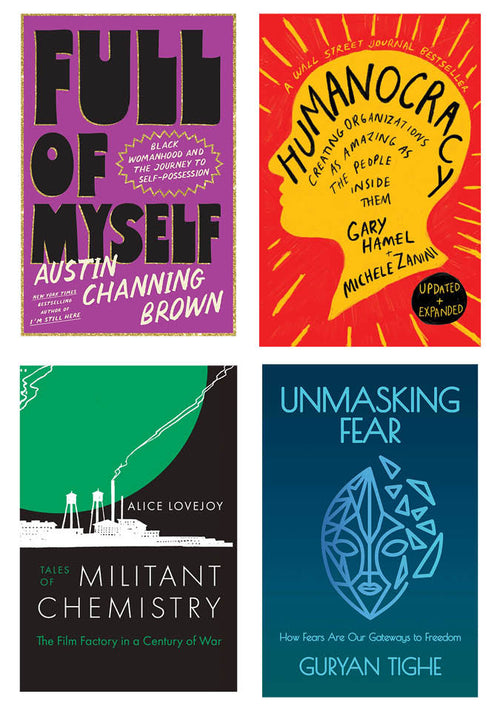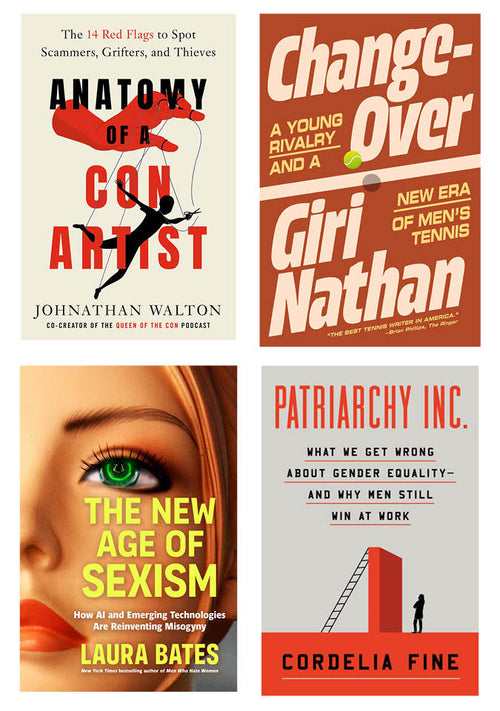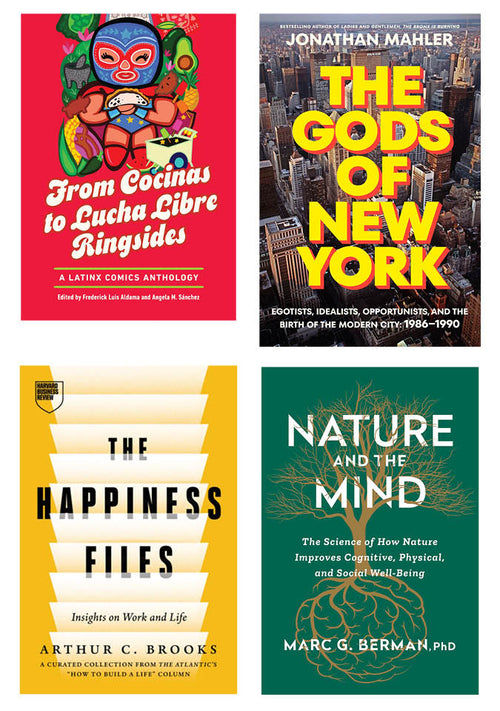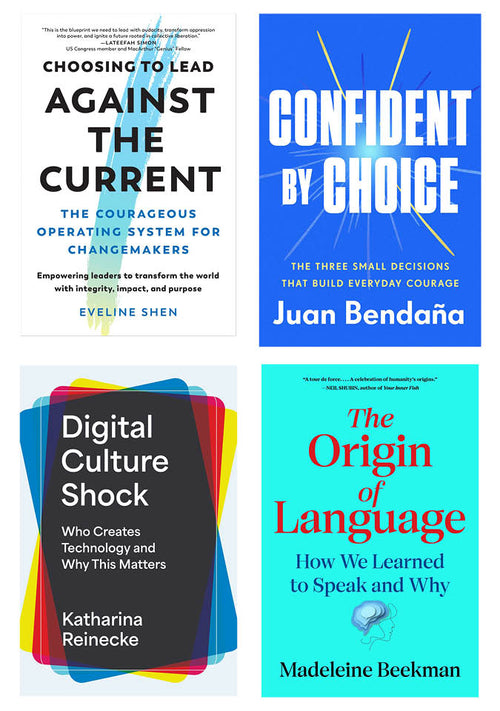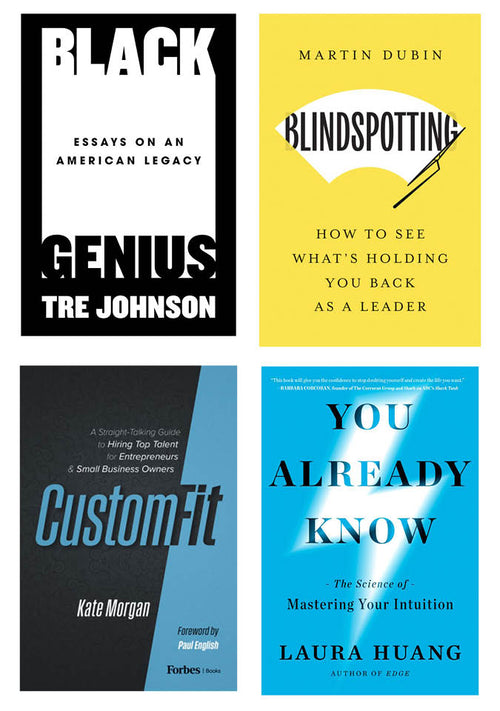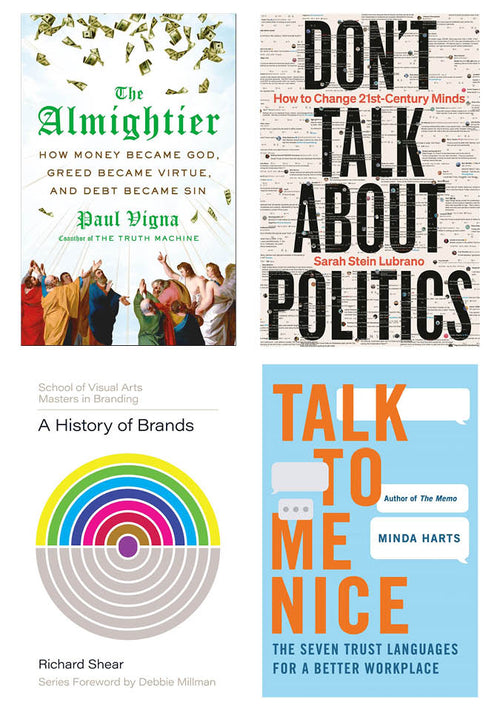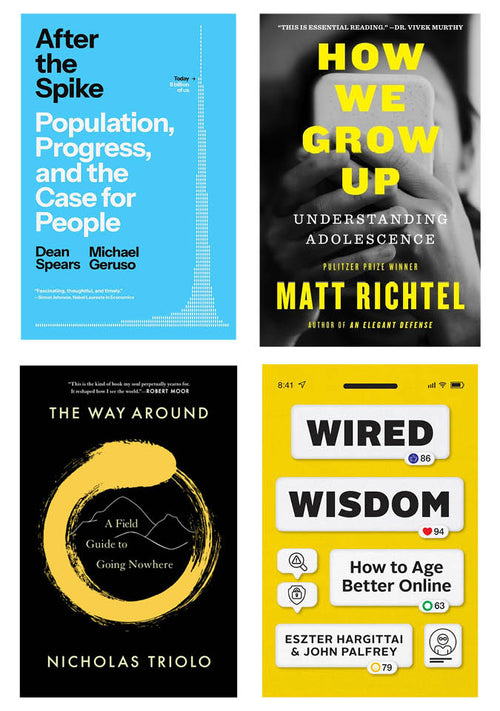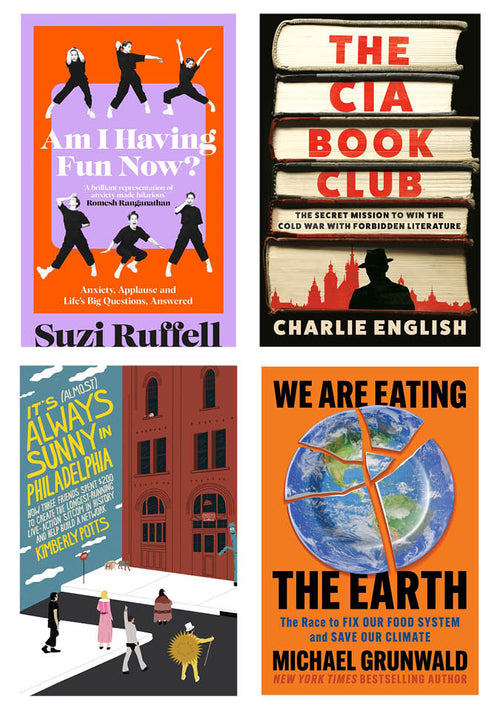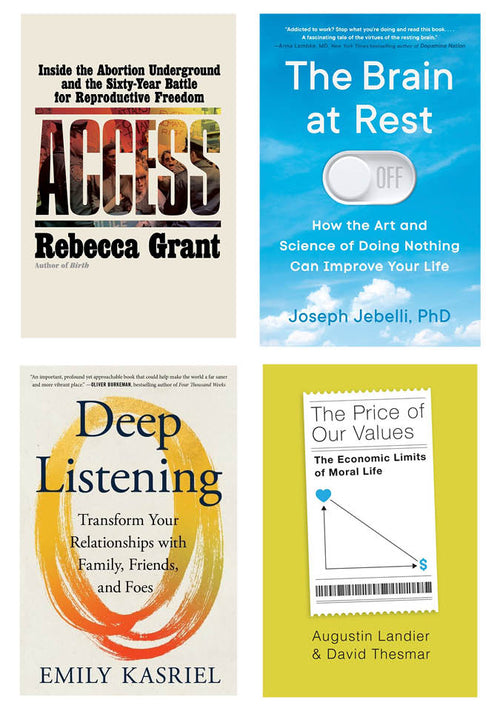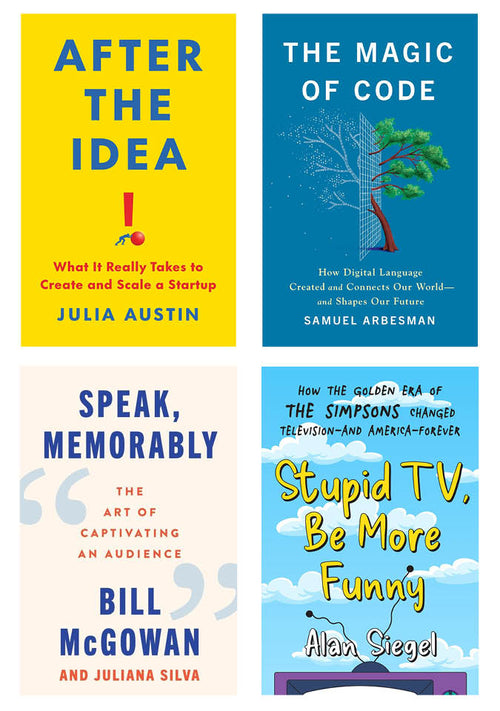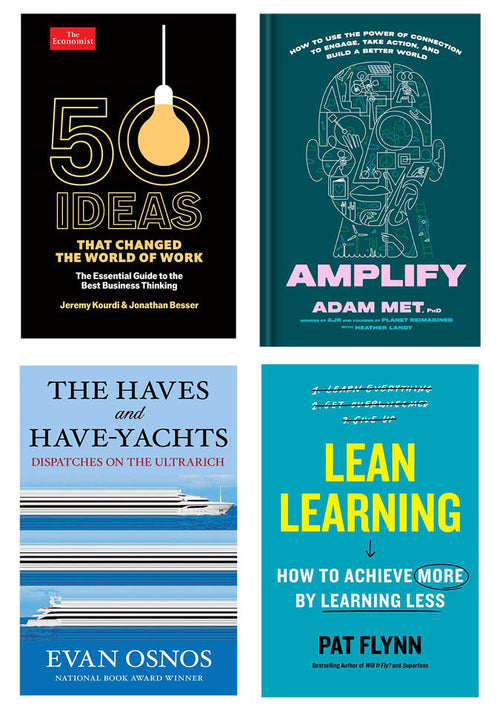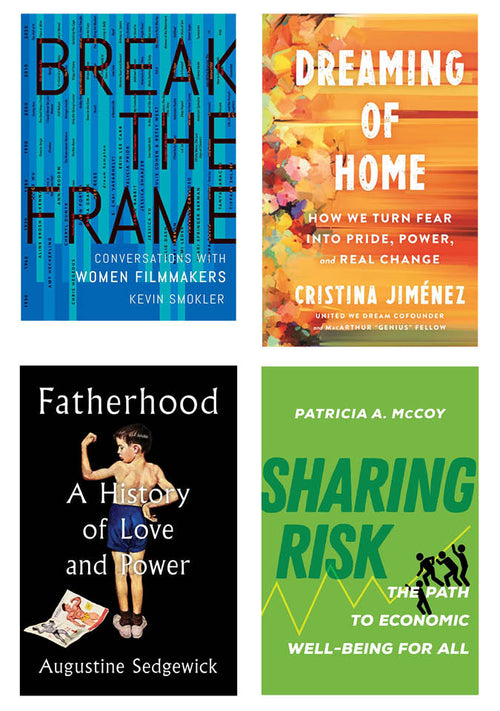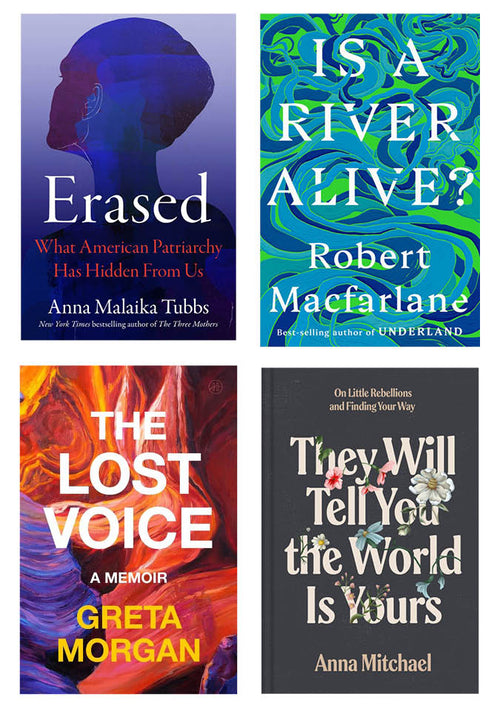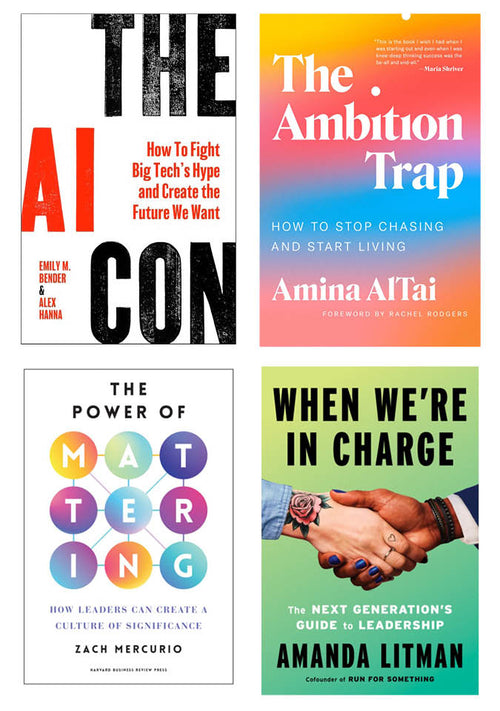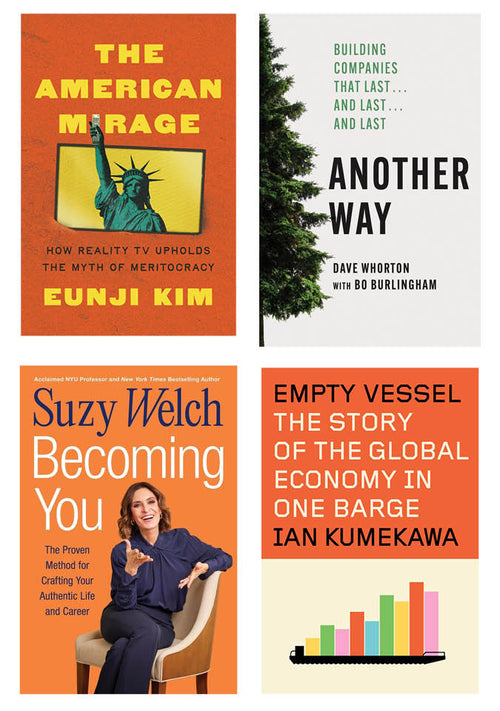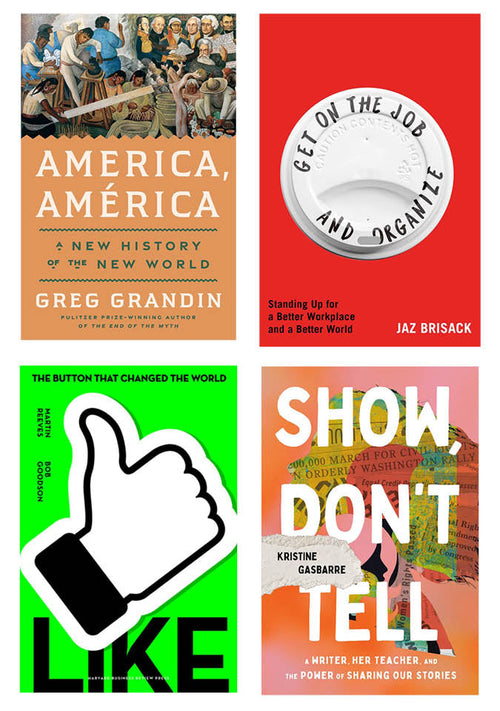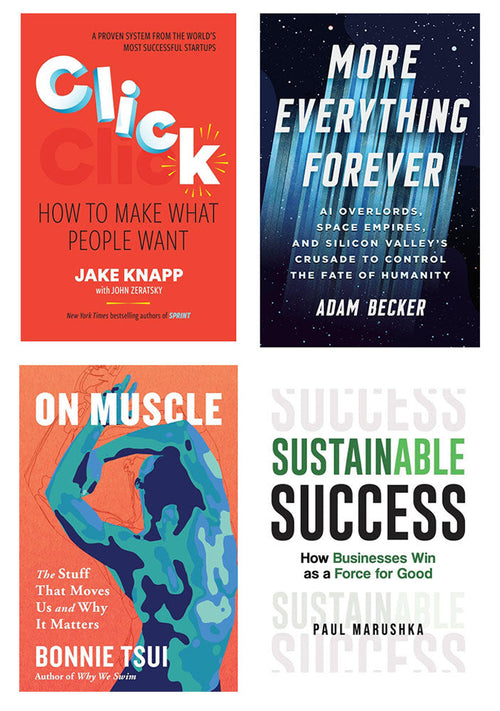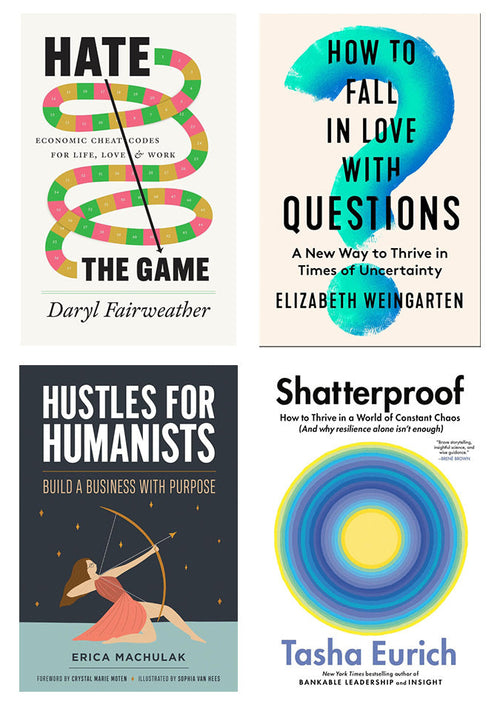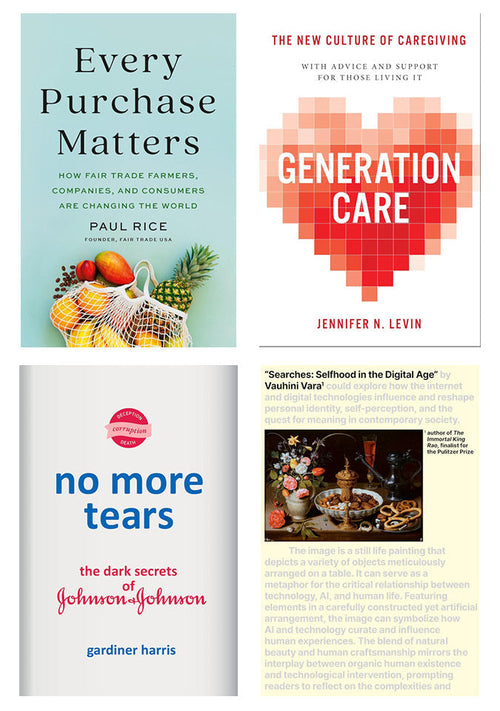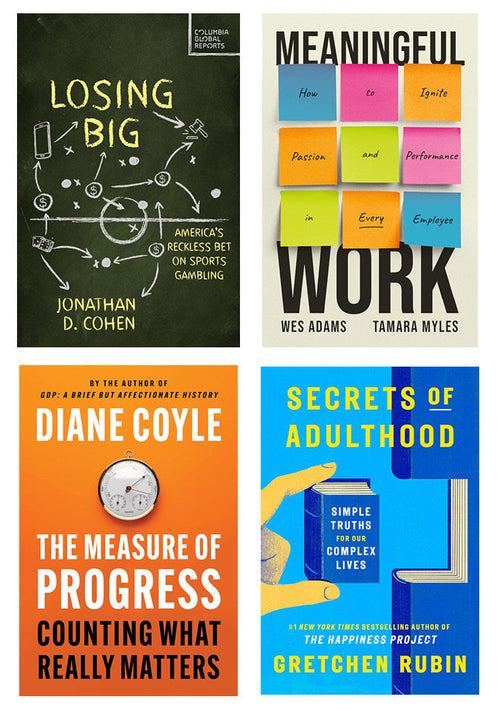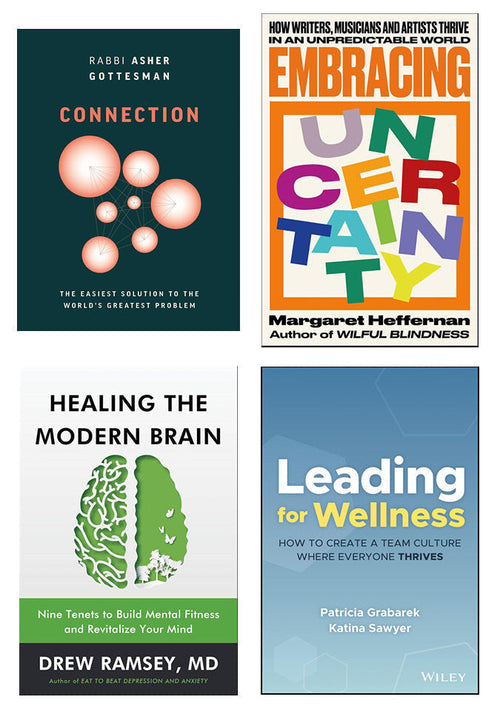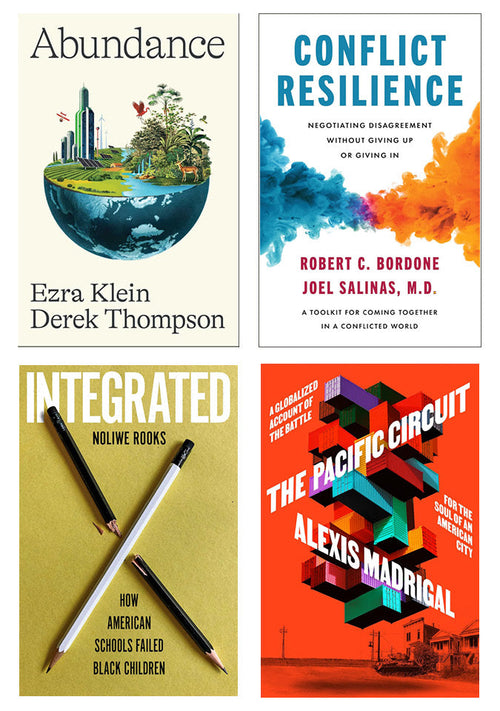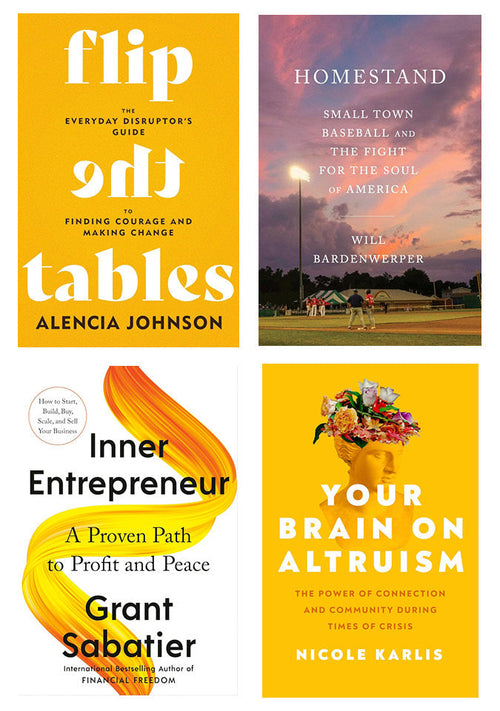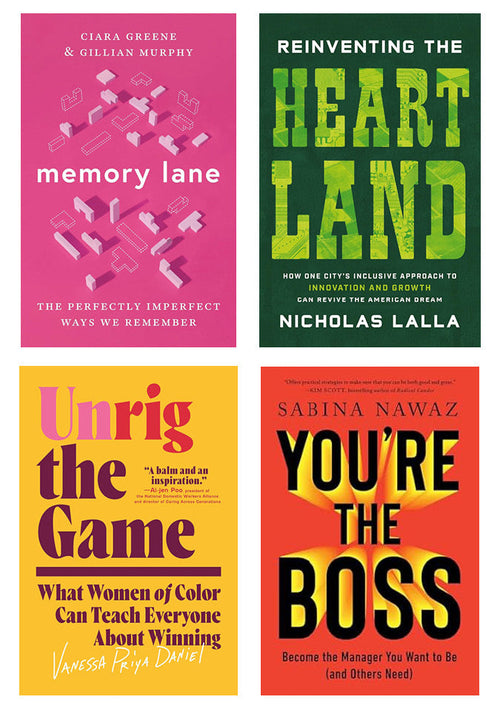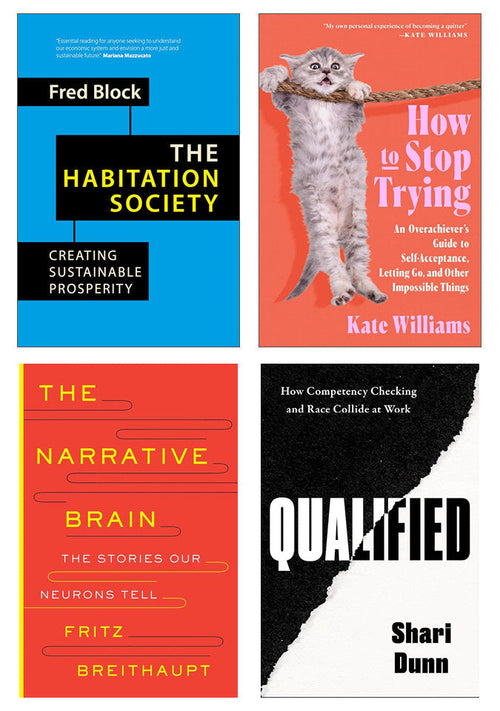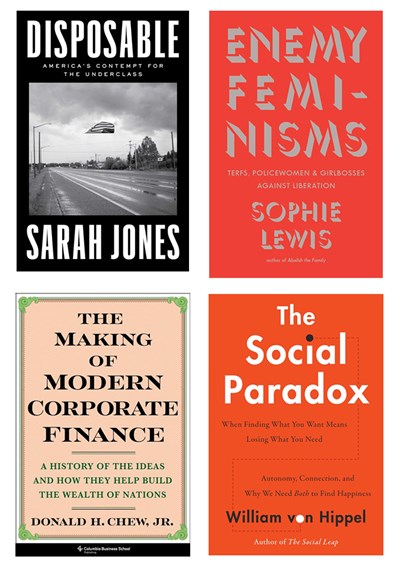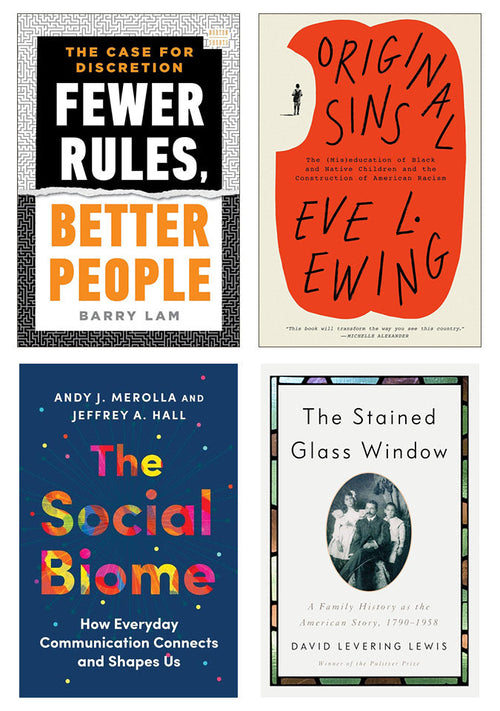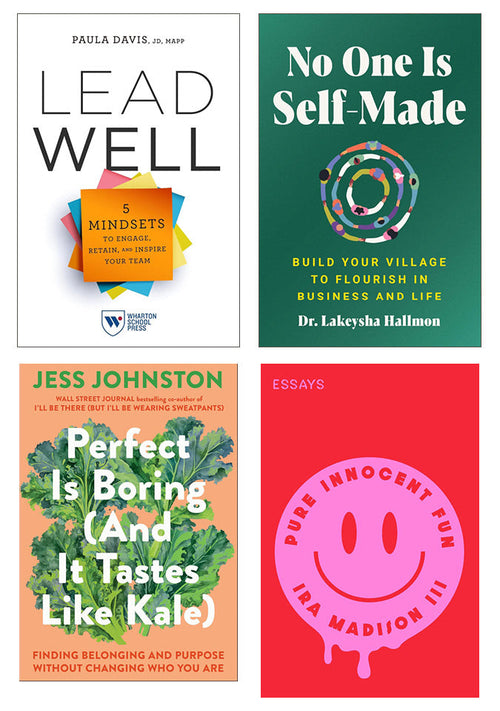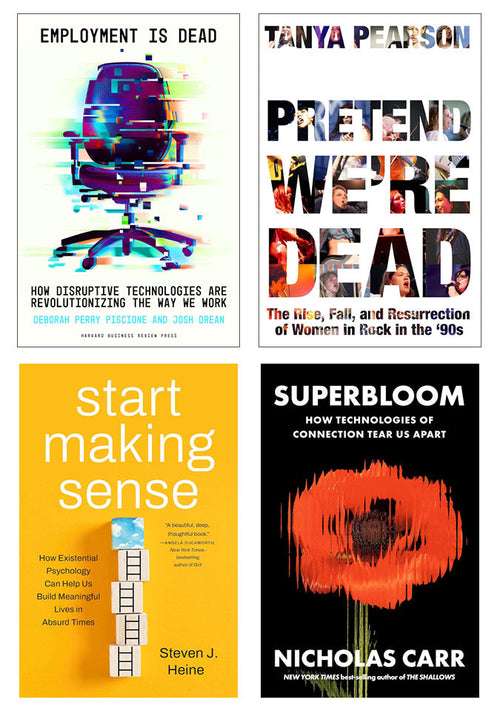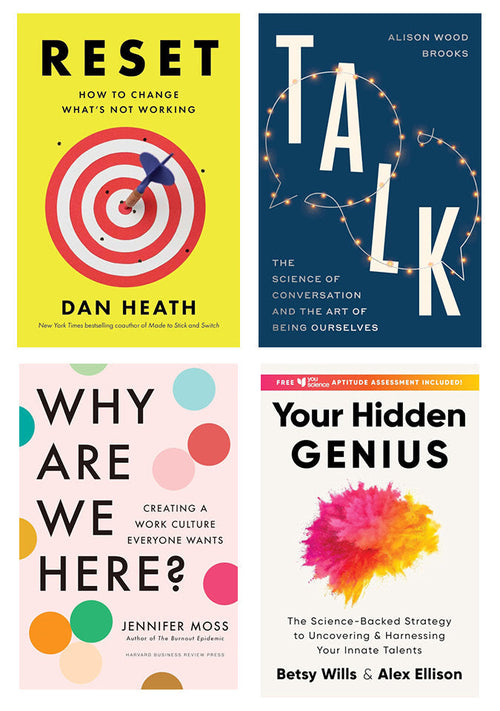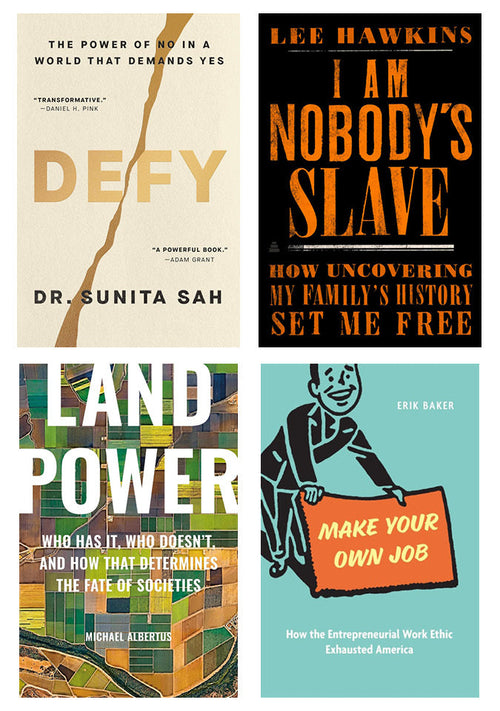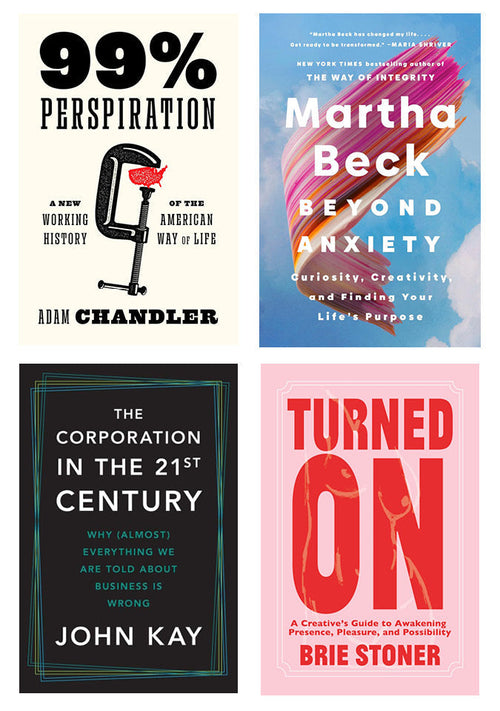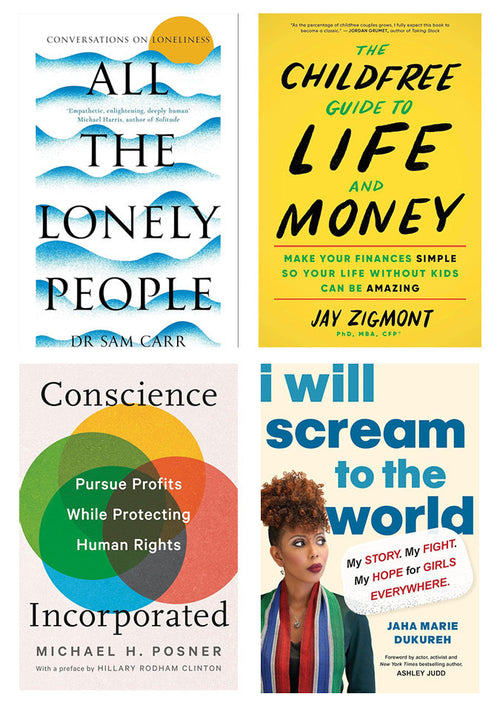Books to Watch | May 5, 2020
Each and every week, our marketing team—Marketing Director Blyth Meier (BRM), Digital Marketing Specialist Gabbi Cisneros (GMC), and Editorial Director Dylan Schleicher (DJJS)—highlights five new books we are most excited about.
This week, our choices are:

Ask for More: 10 Questions to Negotiate Anything by Alexandra Carter, Simon & Schuster
After only a year at Porchlight (my one year anniversary is actually in two days!), I've read through enough business books to know that women are still unequal in many ways to men in the business world. But luckily, there are more and more female business book authors to encourage, empower, and excite us in our quests for equality in the workplace. Alexandra Carter is one of those voices I'm eager to highlight—not just because she's a negotiation trainer for the United Nations, Fortune 500 companies, government agencies, and nonprofits among others. Her book Ask for More reframes negotiation in a way that feels much more human than I've thought it to be. It's not about talking your way up to the top of the food chain. It's about listening.
[I]n order to listen–really listen–to another person, we need to hear their needs, concerns, and feelings, not just to prepare our response.
Carter walks the reader through the many steps involved in negotiating, beginning with five steps of questions for oneself before deciding on what to negotiate for and only then progressing to negotiating. I'd call myself an overthinker, especially in the face of negotiation, so Carter's Ask for More is exactly the book I'd like on my shelves to re-strengthen my decision-making skills when I'm feeling unconfident! (GMC)
Learn how to implement Carter’s negotiating skills from the Fierce Feminine Leadership Podcast, Episode 401 to, among other things, overcome our tendencies to revert to limiting beliefs during crises.
Family Meal: Recipes from Our Community, Penguin Random House
Two months into our new collective “cooking at home” efforts, I’m running out of new ways to make tacos and soup. If you’re feeling the kitchen strain as well, the kind folks at Penguin Random House are here to save your sanity! In Family Meal, they have rallied their incredible group of cookbook authors to raise money for the Restaurant Workers’ Covid-19 Emergency Relief Fund, which supports our country’s 13 million restaurant workers, 40 percent of which live at or just above the federal poverty line. This digital-only cookbook features 50 exclusive recipes from your favorite IGTV and YouTube superstars including Ina “Cosmo” Garten, Samin “Lasagna” Nosrat, Christina “Bake Club” Tosi, and Claire “Don’t Make Me Temper the Chocolate” Saffitz, along with many soon-to-be-favorite new authors. Coming in to break up my taco-monotony are dishes such as: Farm Box and Pantry Stir-Fry from Bryant Terry, Broccoli and Ancient Grain Salad from Edouardo Jordan, Vegetarian Mushroom Bolognese by Eric Ripert, Shrimp and Chorizo White Bean Stew from Kwame Onwuachi (with helpful pescatarian and vegetarian substitutions), and Vegan Cookie-Dough Snacking Squares from Angela Liddon...because don’t we all just want to straight up eat a pile of cookie dough while watching reruns of The Good Wife? Let’s all end our day with John deBary’s Ridiculously Simple (but Fancy if You Want) Punch, which teaches you how to whip up a batch of craft cocktails from whatever booze, juice, and sweetener you have on hand. What I love about the recipes coming out of this era is the “If you do or if you don’t” flexibility built in: use your 9-inch non-stick professional grade springform pan...or something else round? Chop your broccoli in the food processor for three quick pulses...or just hack it to pieces with your too-dull knife? More than ever, recipes are guides for your inspiration, motivation, and situation. Let’s all come out of this time as confident chefs and not just recipe-followers! (BRM)
A flexible recipe that anyone will enjoy. This mac-and-cheese is, as the title states, ESSENTIAL.
The Hour of Fate: Theodore Roosevelt, J.P. Morgan, and the Battle to Transform American Capitalism by Susan Berfield, Bloomsbury Publishing
What would it look like if we reigned in Wall Street, put a check on corporate power and the increased concentration and monopolization of our economy? It might look a lot like what Theodore Roosevelt did at the beginning of the last century, much of which are best illustrated by his public battle with John Pierpont Morgan, which are the subject of a fascinating new book by Investigative reporter Susan Berfield. She writes here about Roosevelt’s ascent to the presidency after the assassination of McKinley, and how his perspective differed from Morgan’s:
When he came to power, the possibility of social unrest seemed close. “The storm is on us,” said a friend of both the president and the financier. Morgan didn’t sense the energy and anger swelling up. Roosevelt grabbed it and tamed it. “I am not advocating anything very revolutionary,” he said. I am advocating action to prevent anything revolutionary.” Morgan couldn’t recognize that.
Big business and big banks aren’t inherently bad. Along with small business and community banks, they built this country, and helped us win two world wars, and they still have a great and important role to play. But left unregulated, they tend to concentrate wealth. That is, in fact, kind of their purpose, and as Susan Berfield writes:
Concentrated wealth, often the result of corporate domination, causes the kind of economic inequality that can undermine powerful societies. It challenges the notion of democracy; politics seems rigged in favor of the rich and influential. It can leave people feeling helpless and desperate.
Roosevelt recognized that, “said that making change could be dangerous but doing nothing could be fatal.” The wealthy were still extremely wealthy when he left office, but his policies helped protect workers and more broadly share the prosperity and abundance that they helped create. We are once again seeing levels of concentrated wealth that match those that existed when Roosevelt came to power, and this book a timely examination of how we might address it. (DJJS)
For more, read an excerpt about What a 1902 Coal Strike Tells Us About Essential Workers Today.
In Awe: Rediscover Your Childlike Wonder to Unleash Inspiration, Meaning, and Joy by John O'Leary, Currency
Stop. Slow it down. Reassess. One of my favorite things about books is how impossible it is to multitask while reading and how little you want to do anything else when you're fully engrossed in a good book. However, what I like best about books like In Awe is how, even after putting it down, you find new ways to continue thinking about the content and implementing the lessons in your life.
Your TV show bingeing. Your online scrolling. Your multi-tasking. Slow it down. Pare it down. Re-focus. Writing these words is easier said than done, but John O'Leary directs our workflow reassessment in the most gentle and compassionate of spaces. He introduces the book and each chapter with quotes from children's books, summoning sensory memories of cramped classroom storytimes, getting dizzy while reading on the school bus, and sketching my favorite characters with colored pencils (Hermione and Luna, obviously).
O'Leary's nostalgia-inducing book is a pleasant escape to simpler times in our lives, not just due to the limited responsibilities associated with being seven years old, but also because of the current limitations on socializing.
"We're sprinting on the treadmill of doing more and more with less and less. We're exhausted and tired of all the effort. Then there's the constant negativity broadcast through the news outlets and social media."
A children's mind is filled with optimism. Maybe you would call this ignorance (I know I would have before reading In Awe), but what could a little optimism hurt? Especially now. This time apart can be reworked, rethought, refocused quite easily if we put ourselves in the mindset of our childhood selves. With the words of John O'Leary, J.K. Rowling, Shel Silverstein, William Goldman, A.A. Milne, and others, we can learn small ways to reconnect with the world and ourselves. (GMC)
Shan Tabatt calls this book "the life-changing read of 2020!" and he interviews John O'Leary in this podcast.
Manifesto for a Moral Revolution: Practices to Build a Better World by Jacqueline Novogratz, Henry Holt & Company
It is really easy to be cynical, and it is understandable why we might become so. But that cynicism is often used, in the words of Jacqueline Novogratz, to “justify inaction,” when what we need so desperately is exactly the opposite. What we need more than ever is optimism, “thoughtful, empathic, resilient believers and optimists on a path of moral leadership” and action. And there are reasons to be optimistic. Novogratz notes that we’ve made great leaps technologically and pulled billions out of poverty in the last forty years, and:
Yet, the same forces that have shaped this world—technology and shareholder capitalism—hold within them the potential to destroy us. We are dangerously unequal and divided. We collectively face the ultimatum of our climate emergency. And many of the institutions devoted ostensibly to improving the lives of the many, not the few, are broken, yet we have not imagined their replacements.
Being optimistic is hard, and making positive change is hard work. Novogratz knows that as well as anyone, because she has been doing it as the founder and CEO of Acumen for over thirty years. But she also knows that if we can start from a base of honoring the human dignity we are all inherently born with in others, even if we do that in small ways in our everyday lives—especially if we do that in small ways in our everyday lives—we can accomplish big things. And she is calling for a big thing, nothing short of a moral revolution that can “reform technology, business, and politics, thereby touching all aspects of our lives.” (DJJS)
Novogratz will be doing Facebook Live events all month, and has also given a number of TED Talks, including one on Inspiring a life of immersion.
What we're reading away from work:
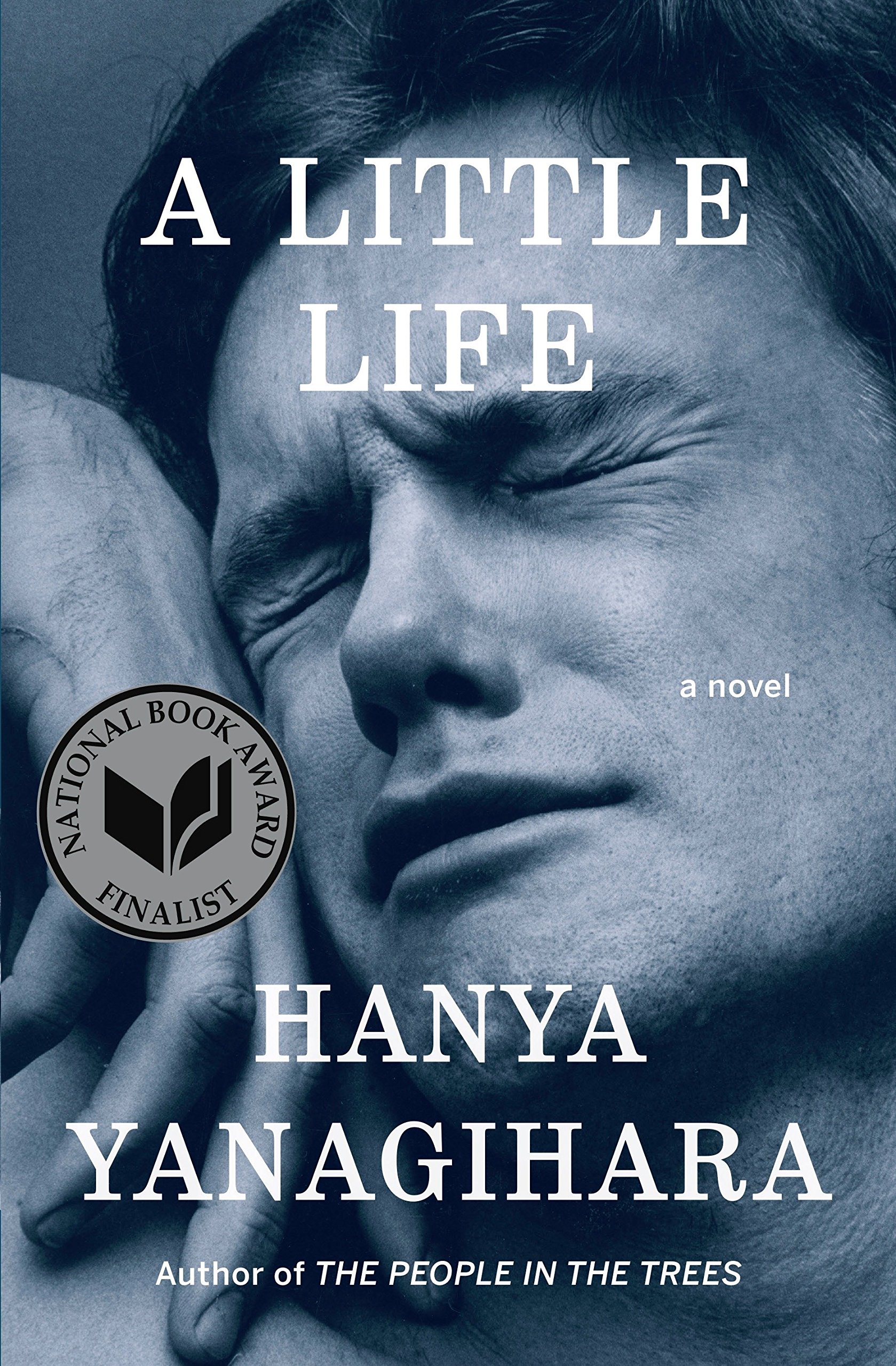 "The photograph on the cover of Hanya Yanagihara’s A Little Life has been haunting me for years. I see it on friends’ bookshelves, staff picks shelves at local bookstores, staring back at me from literary lists of all kinds. Is the person on the cover a man or a woman? Are they in pain or ecstasy? Is the hand theirs or that of a friend or lover? The time has come for me to find out. I’m only on page 25 of the 814 in the paperback version, but I already know that the story of Willem, Jude, BJ, and Malcolm will change the way I view New York when I can visit once again." —Blyth Meier, Marketing Director
"The photograph on the cover of Hanya Yanagihara’s A Little Life has been haunting me for years. I see it on friends’ bookshelves, staff picks shelves at local bookstores, staring back at me from literary lists of all kinds. Is the person on the cover a man or a woman? Are they in pain or ecstasy? Is the hand theirs or that of a friend or lover? The time has come for me to find out. I’m only on page 25 of the 814 in the paperback version, but I already know that the story of Willem, Jude, BJ, and Malcolm will change the way I view New York when I can visit once again." —Blyth Meier, Marketing Director
For a limited time, we’re offering free shipping on domestic mass mailings and waiving customization fees on bulk book orders—among other special offers.

